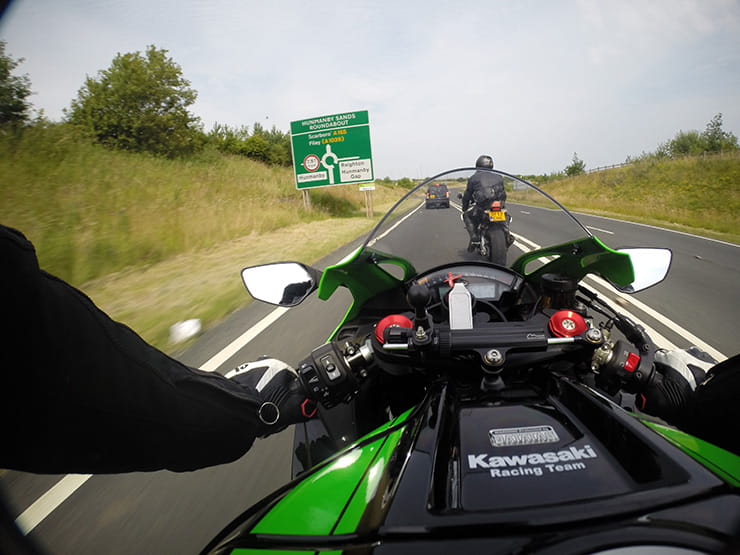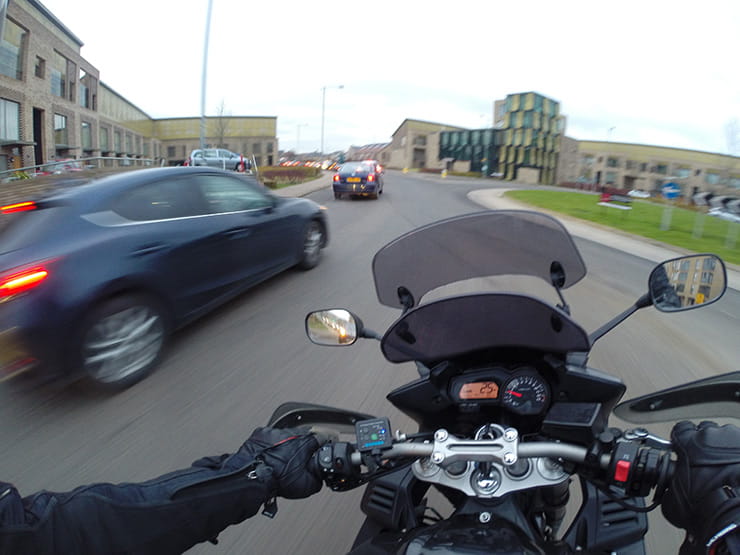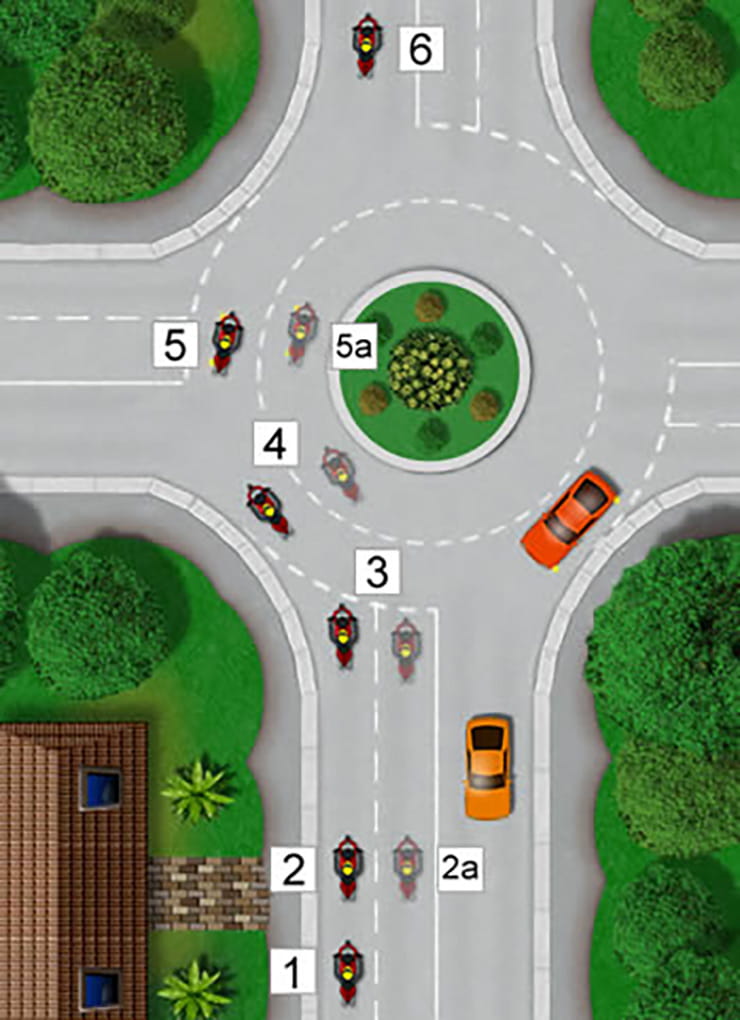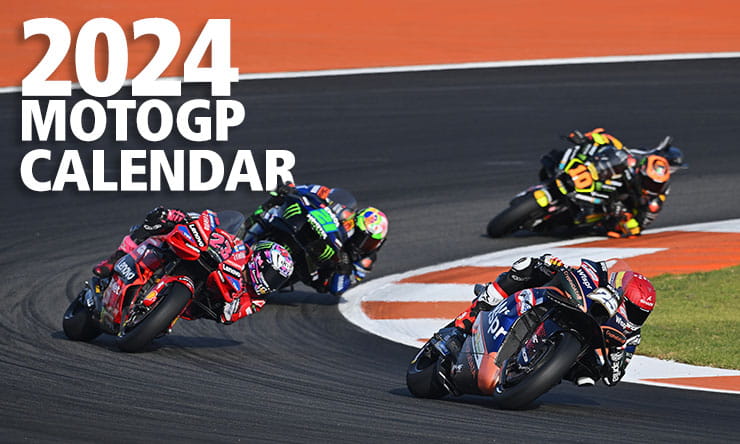So what is the most common roundabout crash?
It’s not what you might expect - it’s not slipping on diesel or cars not seeing us. The most common way - and I mean common, because as a crash investigator I see loads of these - is piling into the roundabout and crashing into the sign telling you it’s a roundabout. It’s the number one roundabout crash by far.
What? How can anyone crash into a roundabout when they can see it coming a mile away?
It happens when riders radically underestimate how fast they’re going and how far it’s going to take to get rid of all the speed. Quite often they clear the roundabout and end up the other side having taken off - it’s usually not a case of getting it slightly wrong.
Really? That’s a serious misjudgement
Indeed. I measured one skid mark from a guy on a Hayabusa that went for 180m before he crashed into the roundabout sign. One hundred and eighty metres! I mean, bloody hell! That is a long skid and a long time, and he still hadn’t stopped - that was done by the sign.
So where do these crashes happen?
Typically at the end of bypasses where riders are doing three figure speeds and ride past the advanced warning sign, the direction sign, the local direction sign and six chevron boards without slowing down enough. They arrive at a speed where it is physically impossible to get round the roundabout.
Why don’t they brake?
Fundamentally it’s a lack of awareness about speed, partly because modern bikes are so good at what they do, and 110mph can feel like 70mph. Some riders can get detached from the numbers on the speedo and perhaps as advanced riding instructors we’re partly to blame for this because we tend to teach people it’s not the number that matters, it’s what you’re doing relative to the road environment. But those numbers do matter when it comes to slowing down.
You need to make a physical check of the speedo because the difference in stopping distance between 70mph and 110mph is immense. It’s not helped by a lot of people’s inability to brake well.
So riders aren’t braking hard enough?
You can double a stopping distance just be being not very good - that Hayabusa rider obviously was not braking efficiently. We find when we’re training that people are often afraid of their front brake, because they think it will cause them to crash. And a lot of the advanced training world has to bear some responsibility for this because we almost train the use of the brakes out of you - some advanced riding groups will look upon the use of the brakes as an error. But then if the first time you have to use the brakes is in an emergency, you will get it wrong.
So we need to practice emergency braking?
Exactly. People need to practice emergency stops from high speeds, and the only place you can really do that safely is on a circuit, usually at the hairpin where you charge up to it like a nutter, brake as hard as you can and go back the other way. That’s where you learn how awesome modern brakes are - you can outbrake a car if you do it right.
Any other common roundabout crashes?
Another common one is at petrol station roundabouts because of spilt diesel, but usually it’s not serious because speeds are low. And sometimes you crash because you’re using the roundabout as a handy overtaking spot to straightline it through and someone does something you’re not expecting. So they might cut across you to turn right instead of carrying straight on as you thought. It’s usually because a rider hasn’t picked up on the little signs drivers give away when they’re lost - the dawdling, the head turning and so on.
And finally, there’s the thinking rider’s crash approaching a roundabout. You check to the right, see nothing’s coming, you start accelerating and hit the person in front who hasn’t even looked yet and is braking to a stop. It’s not usually serious, but it’s embarrassing and almost always your fault.








